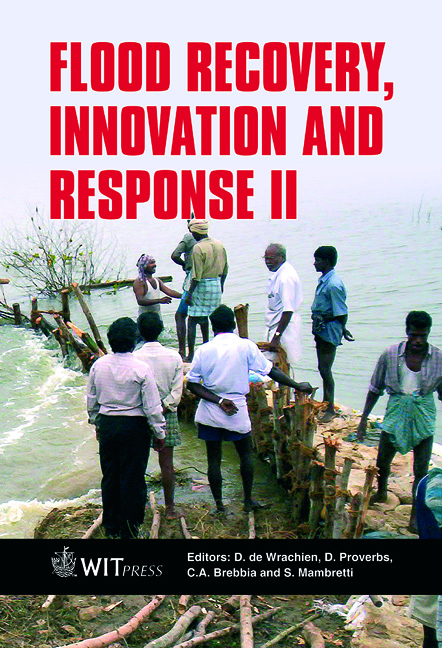Flood Forecasting: The Hard Choice
Price
Free (open access)
Transaction
Volume
133
Pages
11
Page Range
181 - 191
Published
2010
Size
4,369 kb
Paper DOI
10.2495/FRIAR100161
Copyright
WIT Press
Author(s)
M. Mohssen
Abstract
A proper forecast of a flood event with a good lead time can result in a flood warning and the issue of effective measures, which can play a major role in mitigating the severe damage that could occur due to this natural disaster. The literature is rich in research for flood forecasting, but due to the complexity and high variability of the driving factors for floods, many of these models fail to accurately forecast floods. In this research, two models have been developed to forecast the levels for Lake Wakatipu in New Zealand during flood events. The first model is based on a simple hourly mass balance for the lake. However, the choice of the lagged lake level and the cumulative rain in the model formulation were based on a correlation analysis of the available data for the rainfall and lake levels. The second model is a simple regression model that relates the rise of the lake level to the total observed rain. The first model forecasts lake levels 10 hours in advance, while the second model gives 11 hour forecasts. The two models performed well, but the first model is preferred as it is likely to be less biased to the events it was derived from compared to the second one. On the other hand, non linear optimization has been applied to estimate the parameters of a simple transfer function model, similar to the unit hydrograph concept, for forecasting the Kakanui River flows in Otago, New Zealand. An adjusted form of Philip’s equation for infiltration was used to estimate the abstraction of the rainfall event and obtain the effective rainfall that will contribute to the river flow. Weighing factors were assigned to each of the rainfall sites to obtain the best fit between observed and forecasted flows. Keywords: flood forecast, flood modelling, rainfall-runoff, lake level, non-linear optimisation.
Keywords
flood forecast, flood modelling, rainfall-runoff, lake level, non-linear optimisation





